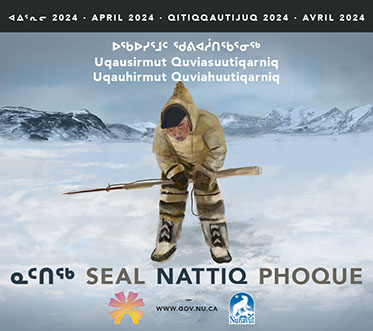Ottawa gives Nunavut some extra health dollars
$4.5 million for front-line health care
Ottawa will give the Nunavut government some extra health-care money over the next three years, allowing the GN to hire a few more front-line health workers for some communities.
Nancy Karetak-Lindell, the MP for Nunavut, announced last week that the federal government will give Nunavut $4.5 million, from a special fund set up to improve front-line health care in Canada.
The special fund, first announced in the fall of 2000, is called the “Primary Health Care Transition Fund.”
“Primary health care” is the term that bureaucrats use to describe the kind of basic, front-line medical treatment that patients get when they walk into a nursing station or hospital to seek care.
Ed Picco, Nunavut’s health minister, said his government will likely use the money to hire an unspecified number of new nurses and doctors.
“We will be looking at enhancing the placement of physicians in communities outside of the capital to provide that primary health care, as well as look at opportunities within the nursing framework, within the capital, and outside Iqaluit,” Picco said.
Picco admitted that the new money represents only a tiny proportion of Nunavut’s overall health and social services budget.
“The total amount we are receiving today is only one or two per cent of our total budget. However, that’s one or two per cent that I didn’t have yesterday and I’ll take it,” Picco said.
He said the health department is likely to run a deficit of about $20 million this year, as it did last year. Although its budget stands at around $153 million this year, the Nunavut government will probably spend about $173 million on the department this year, Picco said.
He also said his department wants to use the money to reorganize and improve the way it provides front-line health care to Nunavut residents.
“It will help us in the short-term and will also allow us to do some longer-term plans,” Picco said. Primary health care is 90 per cent of our delivery mechanism. In every one of our communities except Iqaluit, that primary health care contact is in our nursing stations and our health centres.”
The $800-million fund was announced in the fall of 2000. But because of how long it took to organize the program and approve applications, money from it is only now starting to flow to provinces and territories.
The $4.5 million represents a contribution that Ottawa is making outside of its normal annual transfers of money to Nunavut.
Karetak-Lindell said she understands that the “needs are great” in Nunavut.
But she said last week’s contribution agreement is an example of how the Nunavut and federal governments can work together on improving health care.
“I know we have ways to go but I believe this is a good start to the federal government realizing the unique challenges of the people of the North,” Karetak-Lindell said.
She said improving health in communities means more than just hiring more nurses and doctors, and includes using the skills of community residents.
“My mother is a traditional midwife. There are people like my parents in every community that have the ability to work with the health care people,” she said.
It also means that people must learn to live healthier lives, she said.
“There are decisions that we have to make as responsible people. We have to be responsible for our own health and the health of our children. If a parent is not responsible for the health of her children, then who is?”
Ed Picco pointed out that other examples of territorial-federal cooperation in health care include Nunavut’s telehealth system and a recent Ottawa-funded program that trained 60 Nunavummiut to provide home care to elders.
But he suggested that Nunavut’s greatest health policy issue is still Ottawa’s reluctance to pay for aboriginal health care in Nunavut to the same extent that it does for First Nations people.
“As a government we maintain that the federal government has a fiduciary responsibility to aboriginal Canadians. I think it’s important to point out that Inuit never signed away any rights that were available to them before the land claim was signed,” Picco said.





(0) Comments